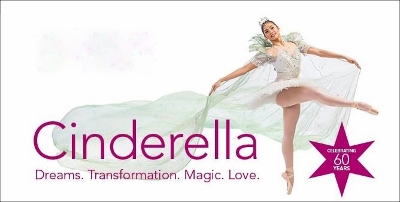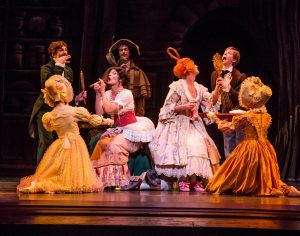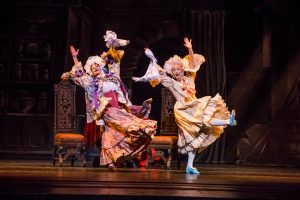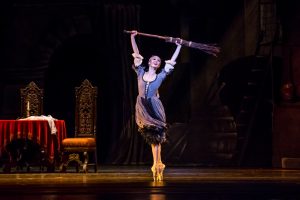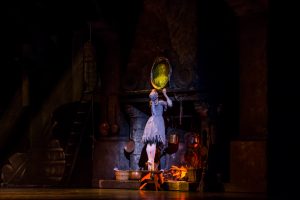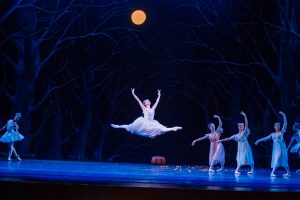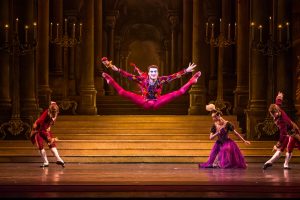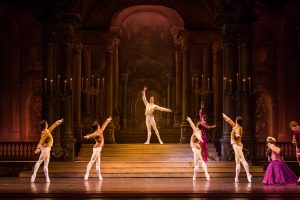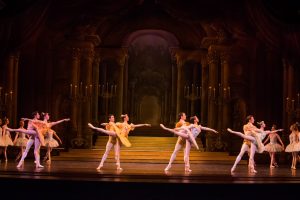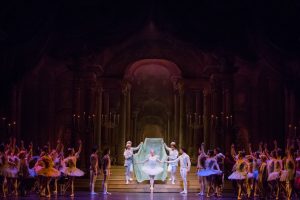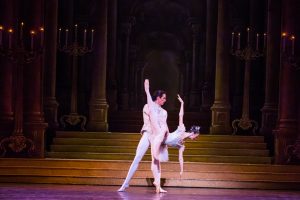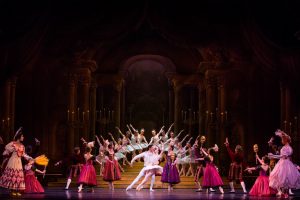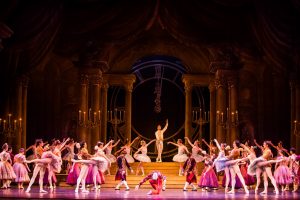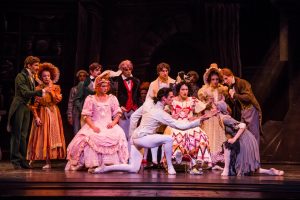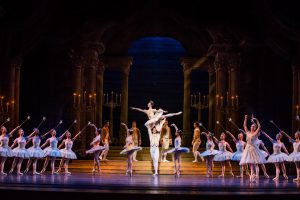A FAIRY TALE LEAPS INTO LOVE
Rossini, Walt Disney, Rodgers and Hammerstein’”they all wanted a piece of Perrault’s fairy tale. Cinderella has become Cendrillon, Cenerentola, and, by Jerry Lewis’ sex change, Cinderfella. In any incarnation the 17th-century source is an irresistible feel-good parable of purity that prospers. It remains the ultimate rags-to-riches story, patient virtue munificently rewarded by a charming prince. In 1948 the sturdy success story became a dance triumph at London’s Royal Opera House: Sir Frederick Ashton crafted the most definitive version of Sergei Prokofiev’s ballet this side of Moscow. In Chicago their Cinderella is magnificently recreated by the Joffrey Ballet at the Auditorium Theatre: Since its advent, Prokofiev’s second-best ballet (after Romeo and Juliet) has had magic to spare for four generations.
Because the wordless storytelling of dance must stick to basics, this three-act confection reprises essential visual elements’”the selfish stepsisters (here gawkily played by male dancers), the hapless father (a sex change from the original), the fairy godmother disguised as a beggar woman who discovers Cinderella’s charity and transforms a pumpkin into a coach, mice to horses and tatters into tutus, the royal ball where Cindy must observe a midnight curfew, the search for the glass slipper (which implies that the prince can’t remember his beloved dance partner without footwear confirmation), and a courtly celebration of goodness in triumph and love in bloom.
The biggest departure from tradition occurs in the first act. Prokofiev throws in a piece of pure pageant: The Fairy Godmother takes the former scullery maid to visit F.G.’s fellow Fairies of the Four Seasons. This delivers a perfect excuse for assorted tableaux and baroque backdrops by David Walker (who also creates the sumptuous Biedermeier period costumes), embellished by the decorous cavorting of twelve female Stars with appropriately astral wands. (During a court ceremony Prokofiev also makes a musical’”and literal’”allusion to his opera The Love of Three Oranges.)
In 2006 Wendy Ellis Somes, a former dancer at the Royal Ballet, reengineered Ashton’s oeuvre for the Joffrey repertory. The result, consummated by 45 dancers playing 39 characters, is nicely organized enchantment. Running through May 22 and celebrating the company’s 60th anniversary, this treasure/treat, also staged by Malin Thoors, focuses on magicians of movement: Victoria Jaiani’s incandescent Cinderella is perfectly partnered by Dylan Gutierrez, her regular and reliable artistic consort. Their solo turns and lyrically levitating pas de deux anchor the spectacle. We’re captivated by bravura movements supple and swift as Prokofiev’s alternately dark or delicate score (here splendidly played by the Chicago Philharmonic).
In contrast to the leaping grace of these fated lovers and April Daly’s lissome Fairy Godmother, David Gombert and Rory Hohenstein lumber clunkily as Cinderella’s hulking stepsisters. Providing quicksilver mockery of the occasionally pretentious court ball, Derrick Agnoletti completes the principals as the Jester, spinning like a top and twirling like ten.
As assorted dressmakers, attendants, suitors, fiddlers, courtiers, and pages, the vast and elegant ensemble provide abundant make-believe. The two-hour tour-de-triomphe regales us with sprightly character flourishes, a four-seasons frolic, foolish and fully-felt mating dances, and a ball that doesn’t need a single waltz to work. Joffrey’s enthralling entourage flesh out an ageless fantasy: Wishful thinking and happy ending work together in total tandem.
photos by Cheryl Mann
Cinderella
The Joffrey Ballet
Auditorium Theatre of Roosevelt University
50 E. Congress Parkway
ends on May 22, 2016
for tickets, call 800.982.2787 or visit Ticketmaster
for more info, visit Joffrey
for more shows, visit Theatre in Chicago
